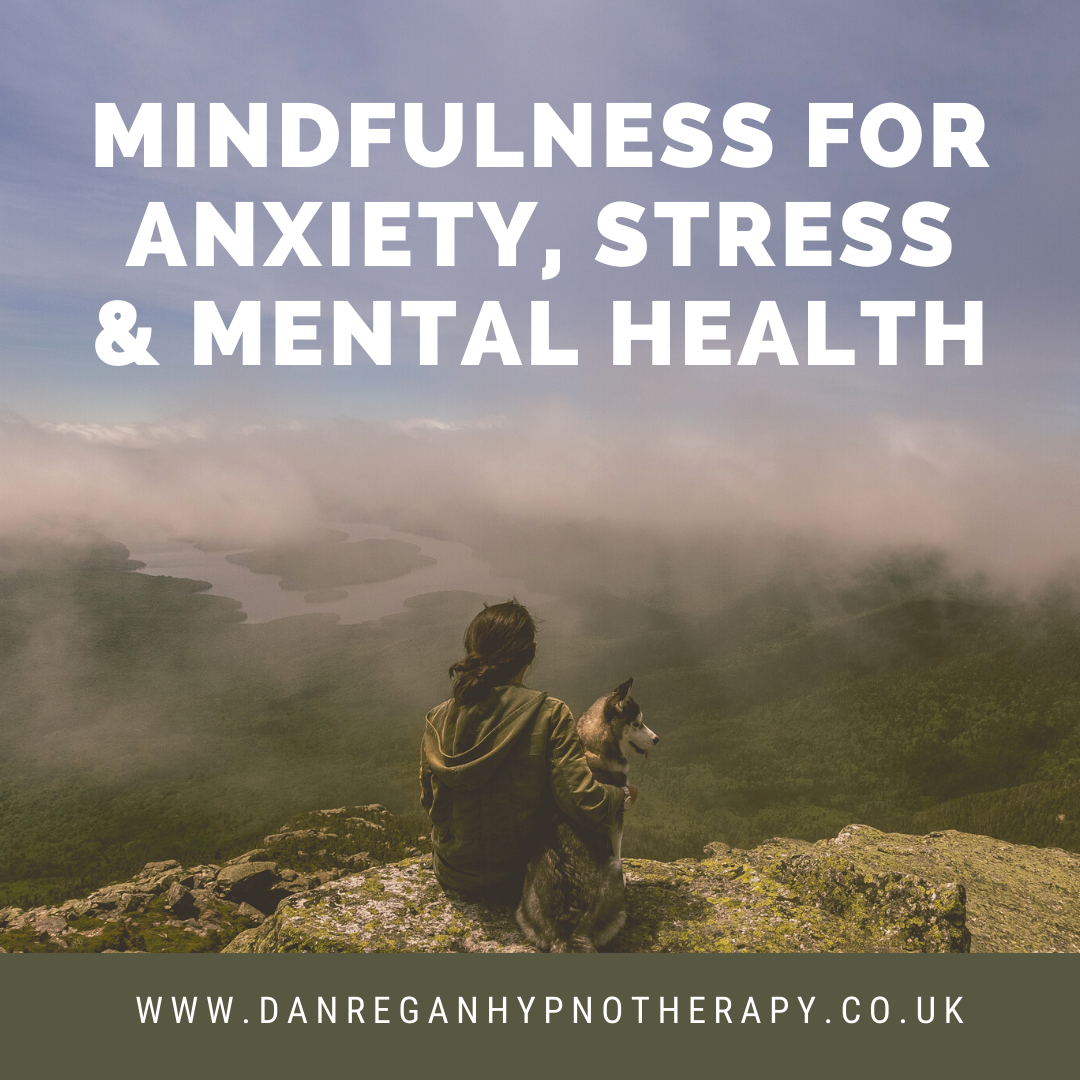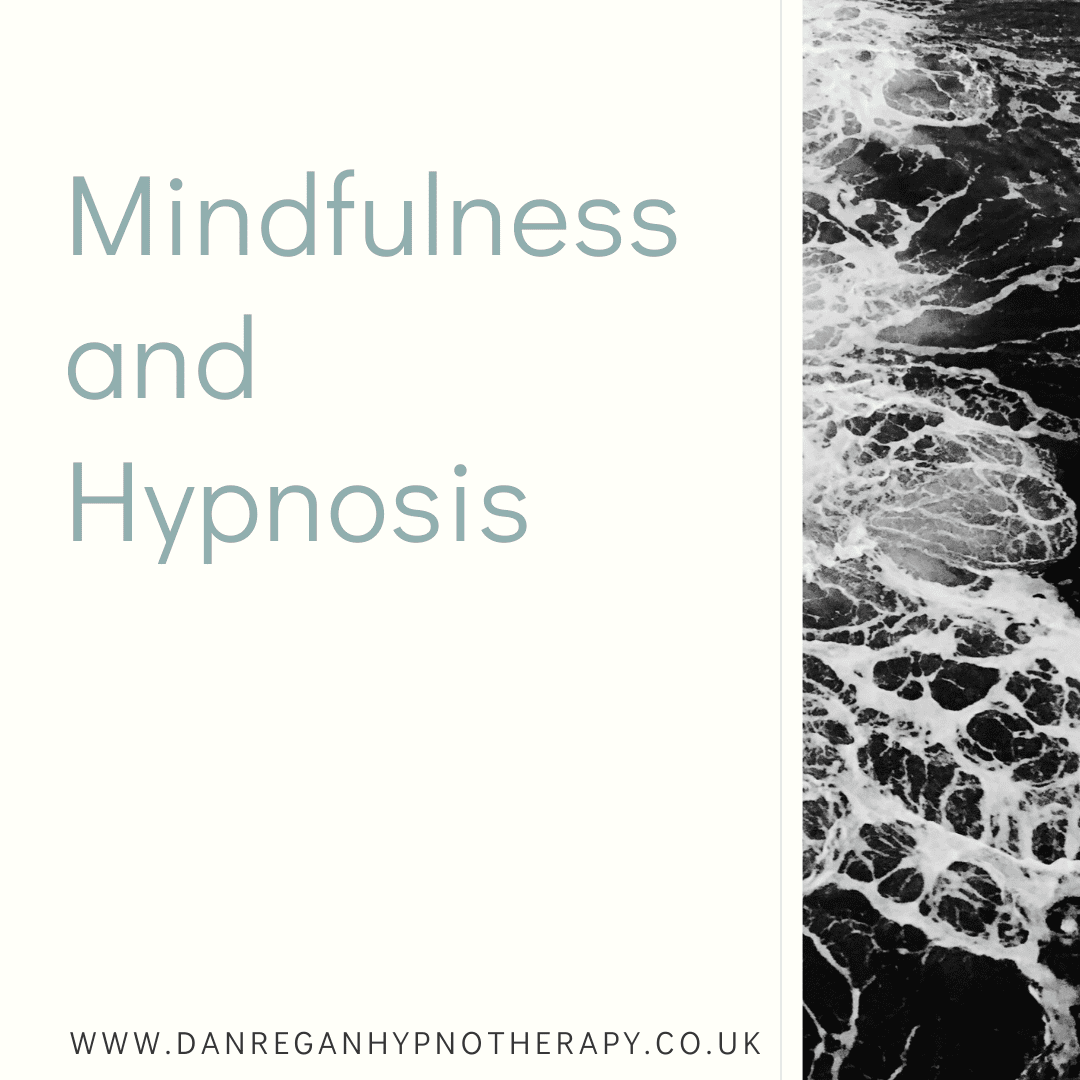Mindfulness For Anxiety, Stress and Promoting Mental Health
Mindfulness for anxiety, stress and other mental health issues has grown as a therapeutic approach and self-help technique over recent years. I’ve incorporated some beneficial aspects of mindfulness into several aspects of my work.
When we talk about mindfulness we are generally talking about being present, or in the present moment. People eat mindfully, exercise mindfully and use purposeful mindfulness strategies to support positive personal goals. Certainly one of the reasons I enjoy learning the guitar so much is because, by its very nature, I have to pay full attention to what I am doing (with variable results but that’s besides the point!!).
When you are engaged in the present moment, there is only right now and so worries about the future, or things from the past, are not at the front of your awareness (paying attention in a particular way; on purpose, in the present moment, non-judgmentally).
Anxiety levels have been rising in the UK for many years so there is an ongoing need to understand and help people to use effective, scientifically supported, treatments. The latest data from the Office For National Statistics suggests that, at the time I am writing this (during Covid-19 lockdown 3), levels of anxiety are higher than they have been since the start of the pandemic. Over 40% of adults reported high levels of anxiety.
So let’s have a look at some of the recent evidence about mindfulness for anxiety, stress and for your mental health.
Mindfulness For Mental Health
Very recently (January 2021), a systematic review and meta-analysis was published that looked at the evidence around mindfulness based programmes and whether they helped with mental health issues, such as anxiety and stress. A total of 11,605 people across 136 trials were included in the analysis.
Galante et al (Mindfulness-based programmes for mental health promotion in adults in nonclinical settings: A systematic review and meta-analysis of randomised controlled trials. 2021) found that, compared with taking no action, mindfulness based programmes helped with anxiety, depression, distress and well-being.
As I’ve mentioned in many previous articles, doing something about unwanted thoughts and feelings is generally always more beneficial that just enduring them, not seeking help, or doing nothing about it.
Mindfulness programmes for stress and anxiety have become increasing popular. And whilst, Galante et al found that, compared with doing nothing, mindfulness reduces anxiety, depression, and stress, and increases well–being, it cannot be assumed that they will work for everyone and in every setting.
These findings stress the importance of carrying out a level of due diligence before signing up to a mindfulness based programme for your mental health. You need to be certain of its quality, its scientific grounding, the qualifications of the therapist and that it is something that will work for you and that you will practice. It’s also possible that alternative therapeutic approaches may be equally, or more, beneficial for you personally (which is where the flexibility to draw upon several evidence supported therapies and techniques becomes invaluable for helping you to deal with mental health issues such anxiety, stress and depression).
“In sum, compared with taking no action, MBPs promote mental health in the average nonclinical setting but cannot be expected to work in every setting. Although MBPs may have specific effects on some common mental health symptoms, other interventions may be equally effective” (Galante et al, 2021).
Given that mindfulness does seem to help many people with anxiety and stress, it’s certainly worth utilising it alongside other actions you may be taking to support your mental health. And given that we know that hypnosis is strong scientific evidence to support its effectiveness, what happens when you combine mindfulness with hypnosis to help you tackle your anxiety and stress?
Mindfulness and Hypnosis For Anxiety and Stress
Evidence shows that combining mindfulness and hypnosis can help with anxiety and stress.
Olendzki et al (Mindful hypnotherapy to reduce stress and increase mindfulness: A randomized controlled pilot study, 2020) investigated the feasibility of mindful hypnotherapy for stress reduction in a randomized trial. They found that the mindful hypnotherapy participants recorded large, statistically reliable, and clinically significant improvements in perceived stress, and reductions in psychological distress such as depression, hopelessness, anxiety, and anger.
These results support using mindful hypnotherapy as a way of significantly decreasing psychological distress and stress (and support the use of hypnosis and mindfulness together to promote your mental health).
“In conclusion, mindful hypnotherapy shows promise for being an effective intervention for decreasing stress. Given that the results for mindfulness and psychological flexibility were comparable or superior to mindfulness interventions delivered in a nonhypnotic context, this novel intervention shows potential for being a unique and a valuable contribution to stress reduction interventions” (Olendzki, 2020).
This is perhaps unsurprising as the evidence and research also shows that adding hypnosis to another popular therapy, namely cognitive behavioural therapy, tends to enhance positive outcomes. This evidence suggests that if you are looking to reduce your anxiety and stress, it makes sense to combine mindfulness with hypnotherapy to increase the likelihood that you will enjoy more positive results.
I’ve discussed more about mindfulness and hypnosis, and the research, in these two related articles:
Mindful Hypnotherapy to Reduce Stress and Increase Mindfulness
Mindfulness Hypnosis
To build upon the mental health benefits that I’ve described above, here is a process you can use to calm your mind.
1. Sit somewhere quiet, take a deep breath and close your eyes. If you know self-hypnosis or meditation techniques you could incorporate these here. Or just sit or lie quietly for a few minutes. Extend your out breath and say the word ‘relax’ to yourself on every breath out. You could tense and relax each part of your body or tell yourself that each part of your body is relaxing. You could imagine a calm colour or sensation spreading through you or fill your mind with a relaxing sound. You could engage your imagination and imagine being in a remembered or created place of calmness, seeing the sights and hearing the sounds. Or you can draw upon and utilise any other ways that allow you to feel calm and relaxed. Your aim here is just to feel as safe, calm and comfortable as you can right now.
2. Start to become aware of your entire body as one, from the top of your head down through your body and into the tips of your toes. Just aim to be aware of your entire body as one right now. You don’t need to try to change anything and you don’t need to try and stop anything from changing. Just notice what you notice, feel what you feel in your body and be aware of your entire body as one, with a sense of contentment.
3. Now, move your awareness to your breathing. Notice the sensations of your breathing. The rise and fall of every breath that happens so automatically. The feeling of your chest expanding, and then relaxing. Notice the sensations anywhere and everywhere caused by your breathing. Just tune in and watch your body breathing. If your mind wanders at any point you can gently bring your awareness back to your breathing.
Tune in and notice the sensations of your breathing as you let your body do the breathing, almost as if you were watching someone else breathing, or a bird in a tree breathing or like you are watching a perfectly working machine. Continue to imagine you are breathing in calmness and becoming more calm, balanced and at ease as you breathe out.
4. Now, start to become more comfortably absorbed in the sensations of your body. Become aware aware of the sensations in your arms, in your chest, in your stomach and legs and then into each and every part of your body. You can notice whether each part of your body feels warm or cold or somewhere in between, whether you feel lightness or heaviness or something in between and just be content to notice what you notice as you let your awareness go deeper into your body. And throughout you can bring your awareness back to your breathing, the rise and fall of every breath that happens so automatically.
5. Then begin to gently turn your attention deeper, into your mind and towards your thinking. Become aware of the thoughts in your mind. Just notice, watch and observe your thoughts, the things you say to yourself, any images in your awareness, deliberate thoughts and the things that may just be drifting through your mind, thoughts at the back of your mind and those in your current awareness.
Allow each thought to come and go in its own time, without trying to remove those thoughts or to change those thoughts, just observe them and just watch them happening. Almost as if your mind is the sky, and your thoughts, feelings, and sensations are clouds that you just watch as they pass by or as if your thoughts are just ocean waves that come and go, that grow and subside as you just watch them happening. Watch your thoughts as they come and go, thought by thought, moment by moment, all the while remaining calm and comfortable.
6. As you observe your thoughts, imagine a screen in front of you, like a TV screen or a cinema screen. And then beginning to let any unwanted thoughts, any clutter in your mind, old thoughts, old habitual thoughts, any negative thoughts drift from your mind and over and onto that screen over there in your mind. See them over there on that screen in your mind now.
You can scan through your thoughts, through your mind so that anything unnecessary, anything unwanted is leaving your mind and is moving over there up and onto that screen. As you send those things over there, notice how your mind and body feel lighter, more comfortable, more free and more clear. Really sense and assure yourself that your mind is now more free and more clear, and how anytime you want to, you can use this ability to become more balanced and at ease. And you can start to imagine how you take this mental calmness into other aspects of your life, handling, dealing and coping with things in a more and more calm way.
7. So when you’ve done that, and knowing that you can now deal with things and handle things, in a more and more calm way, count yourself up from one to five and, on five, open your eyes and bring this mindfulness process to an end.
If you would like me to talk you through this process, using mindfulness and hypnosis to calm your mind (and reduce anxiety and stress) then I have a hypnosis download that may interest you: Mindfulness Hypnosis. My Mindfulness Hypnosis download can help you to switch off mentally so you can enjoy the here and now, reduce your stress, anxiety and worry levels, feel more in control over your mind and your thinking and to clear you mind so you can focus and think more clearly.
To your health and happiness,
Dan Regan
Online Skype and Zoom Hypnotherapy
Face-to-face hypnotherapy in Ely & Newmarket
Struggling with anxiety, stress, worry and fear and need some help? Find out how I can help with a Complimentary Hypnotherapy Strategy Session. Learn more here: Appointments
Find out what dozens of other people have said after their hypnotherapy sessions with Dan: Hypnotherapy Testimonials
And check out these powerful hypnosis downloads that can start helping you right away with anxiety, confidence and more: Hypnosis Downloads
References:
Galante, J., Friedrich, C., Dawson, A.F., Modrego-Alarcón, M., Gebbing, P., Delgado-Suárez, I., Gupta, R., Dean, L., Dalgleish, T., White, I.R. and Jones, P.B., 2021. Mindfulness-based programmes for mental health promotion in adults in nonclinical settings: A systematic review and meta-analysis of randomised controlled trials. PLoS medicine, 18(1), p.e1003481
Office For National Statistics, Opinions and Lifestyle Survey, January 2021
Olendzki, N., Elkins, G.R., Slonena, E., Hung, J. and Rhodes, J.R., 2020. Mindful hypnotherapy to reduce stress and increase mindfulness: A randomized controlled pilot study. International Journal of Clinical and Experimental Hypnosis, 68(2), pp.151-166.






0 Comments